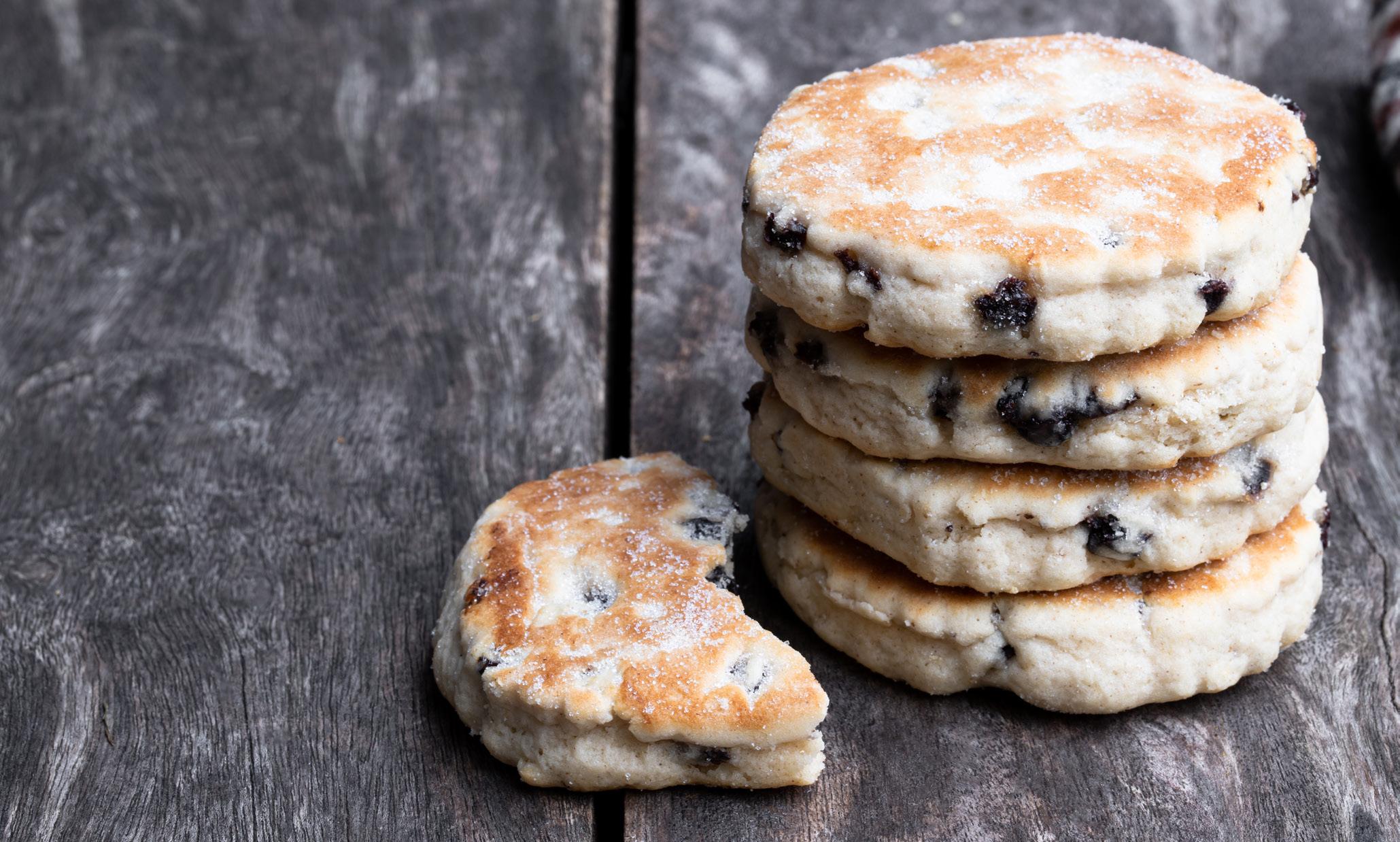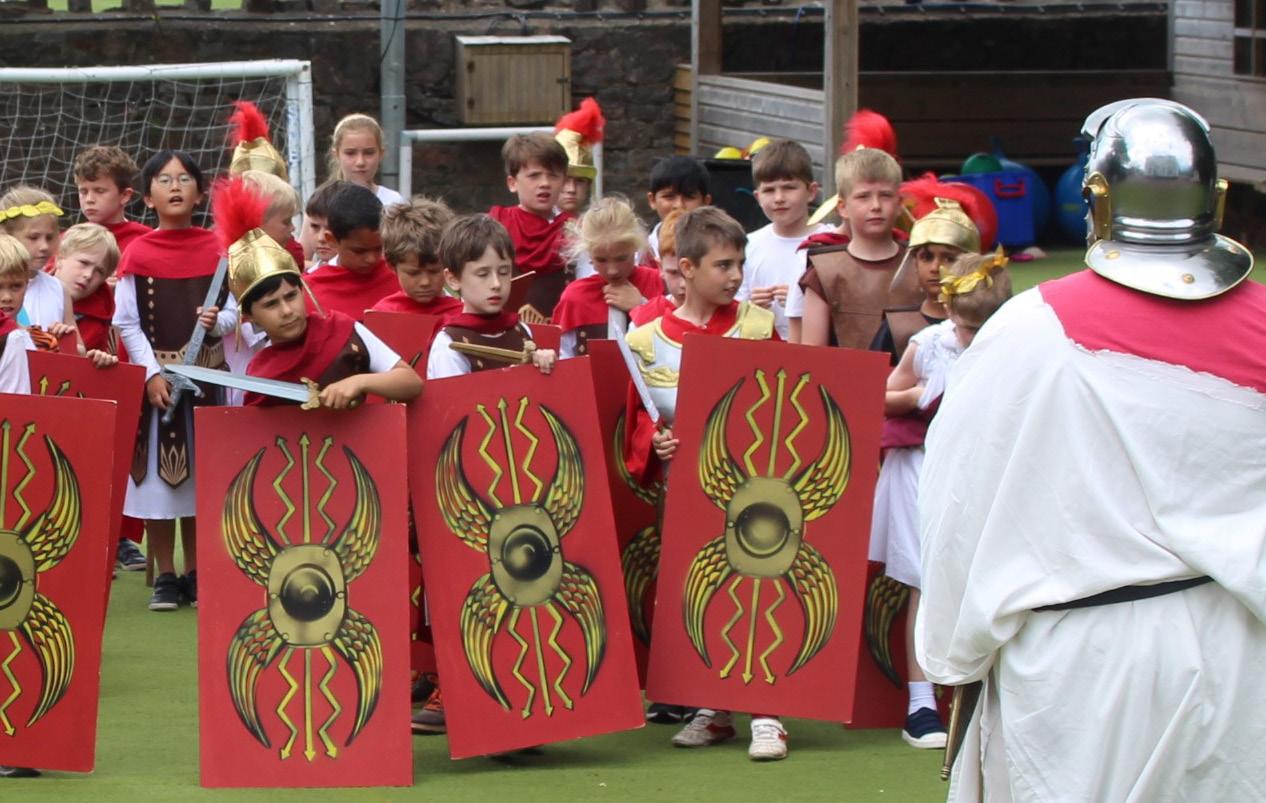C O M M E M O R AT I V E D AY
Paralympian Inspires Exonians As part of an adapted Covid-era Speech Day programme, Exeter School welcomed Claire Harvey MBE to lead a three-day programme of talks across the school. Claire is renowned for her diversity and inclusion consultancy across society as well as her athletic career. On her final day with us, Claire was kind enough to answer some of The Exonian’s questions on her time in the prison service, her Paralympic success and more. by
ELEANOR CL ARK
How have you found your three days at Exeter School? I’ve really enjoyed it. I was actually really glad when Speech Day was cancelled, because I really don’t like being the centre of attention. I’ve preferred working in these smaller groups because I’ve got to meet people and understand the school, and hopefully I have given lots of people different things to think about. Is there something you wish everyone knew about what it’s like to live with a disability? I wish people knew that it doesn’t change you. After my accident, people changed what they did around me and how they talked to me, and I wish they wouldn’t do that. I also get frustrated with benevolence bias – assuming that disabled people are all lovely – when actually I’ve met disabled people who are not very pleasant people. That almost irritates me more than people pretending I don’t exist. What was the biggest factor in getting out of the mental rut you faced after your accident? I think it’s about habits. At the end of everything, I always evaluate what went well, what didn’t go well and what I can change next time. You have to give yourself permission to not be okay. There are people and things in life that give you energy and those that take it away from you. Part of resilience is recognising what those things are for you, then giving yourself permission to do energy-giving activities when you’re feeling low. Society expects us to be good at everything, when in reality, we aren’t. Work out your weaknesses, because some of them won’t matter. The other thing is control. When I panic, I write lists. I identify things I have direct control over, and do something with them. Then I find what I have 20 The Exonian 2021
“ Nobody starts as an elite athlete, they start at a grassroots level, and if someone has a negative experience early on, it can really set them against sport.” for life way” indirect control over, and ask for help with them. Then I find the things I have no control over and throw them out of the window. In what ways do you feel that sport is important in young people’s lives? I think it helps people find a place where they belong, in new friendship groups but I don’t think it’s a silver bullet. People talk about sport as if it will solve everything, but that’s not the case. Nobody starts as an elite athlete, they start at a grassroots level, and if someone has a negative experience early on, it can really set them against sport for life, which is a shame.
What are the biggest issues the world of Paralympics face as a result of the coronavirus pandemic? The lack of training is a huge challenge. The European Championships were cancelled as the athletes weren’t ready. Disability sports are already poorly funded, so the loss of revenue means that disability sports’ clubs are the first to go. Take volleyball for example; beach and standing volleyball have been training for two months now, but people assume that those of us with disabilities are automatically vulnerable, which is not necessarily true. I have a spinal cord injury; it doesn’t mean my lungs are a problem. Given that there is a huge range of disabilities, do you think the way the Paralympic Committee categorises athletes has created a fair environment? On paper yes, because it is measured on functionality and not what’s wrong with you. In reality, technology is moving, so people’s functionality can change quite dramatically. In a lot of sports, you get classified at the beginning of your career and stay there forever, even if your functionality changes. Because there are not many people playing disability sports, categories are widened to make it a viable competition. That means being at the bottom end of the classification can make it impossible for an athlete to compete with others in that group. It’s not perfect, but it’s the best system they can have in a clumsy world. How did you get involved in the penal system? At school I had no idea what I wanted to do, except that I didn’t want to be academic, because everybody told me that I was. With hindsight I can see that that was because I didn’t fit in: when that happens you either start feeling really small or push people
















































